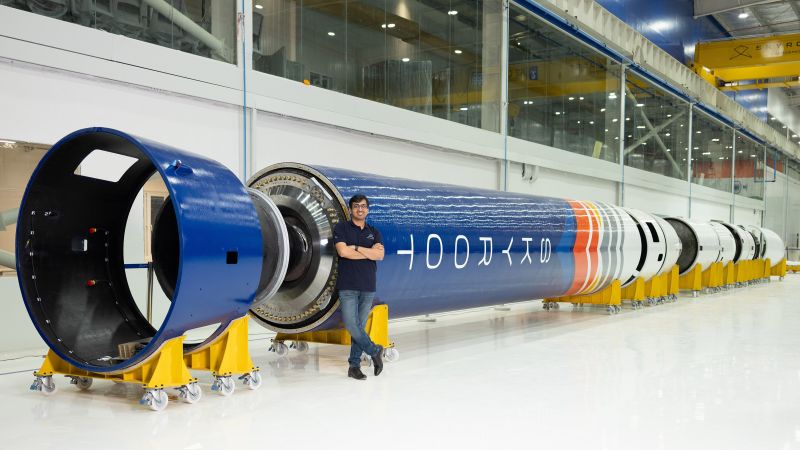India has made significant strides in the field of space exploration, becoming the first Asian country to reach Mars orbit and the fourth globally to land a spacecraft on the moon. However, the private sector has traditionally played a limited role in this sector, primarily serving as suppliers and vendors for the Indian Space Research Organization (ISRO). Recent government reforms are changing this landscape, paving the way for increased private participation in space exploration in India.
Rising to the challenge, Indian startups like Skyroot Aerospace are leading the charge to commercialize India’s space sector and elevate its status as a space superpower. With the launch of the country’s first privately developed rocket, Vikram-1, Skyroot aims to take India’s first private satellites into orbit. This milestone, led by former ISRO scientist Pawan Chandana and his team, marks a significant step in the diversification of India’s space sector and the exploration of new commercial opportunities.
India’s ambitious national initiatives, such as plans for a space station by 2035 and an Indian astronaut on the moon by 2040, combined with Prime Minister Narendra Modi’s efforts to boost commercial space activity, are driving the country’s space industry forward. Companies worldwide are launching vast numbers of satellites into low Earth orbit, creating mega-constellations to deliver broadband Internet services to users on Earth. The small satellite market is experiencing exponential growth, with significant economic potential in the global space economy.
Skyroot Aerospace aims to capture a share of the small satellite market by offering customized launches for satellites under 500 kilograms, distinguishing itself from the rideshare model of companies like SpaceX. Despite facing stiff competition, Skyroot’s dedicated launch services offer advantages for those seeking customized orbits that may not be accessible through ridesharing missions. The company’s innovative approach and commitment to affordability, influenced by India’s space program, position it as a key player in the evolving space industry.
With almost 200 space startups in India and private investment exceeding $200 million, the country’s space sector is poised for growth. Skyroot has secured $95 million in funding, making it India’s most-funded space startup. As the company works towards profitability and establishing a reliable track record of reaching orbit, the potential for partnerships with the government and international clients is promising. Chandana envisions a future where the government becomes a customer, further fueling the expansion of India’s private space companies as they compete on a global scale.
Despite government funding constraints compared to countries like the US and China, Indian space startups have the opportunity to carve out a space in the global marketplace by diversifying beyond serving domestic mandates and bidding for international contracts. Chandana’s vision to position Skyroot as one of the top three launch companies globally reflects the determination and ambition driving India’s private space sector. The combination of government support, private investment, and technological innovation highlights the potential for India to become a significant player in the competitive field of space exploration.













